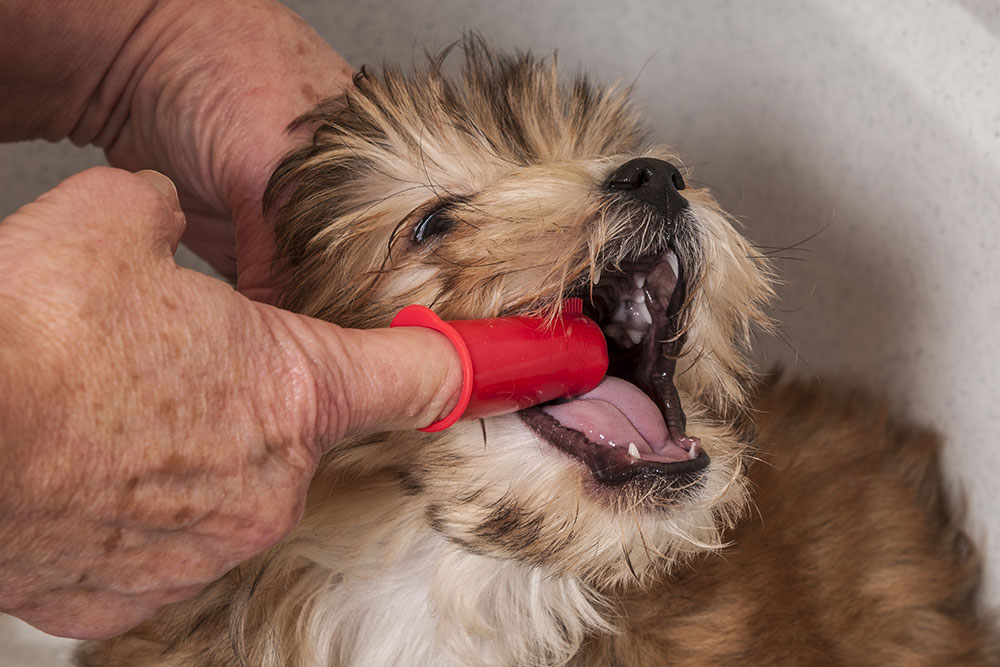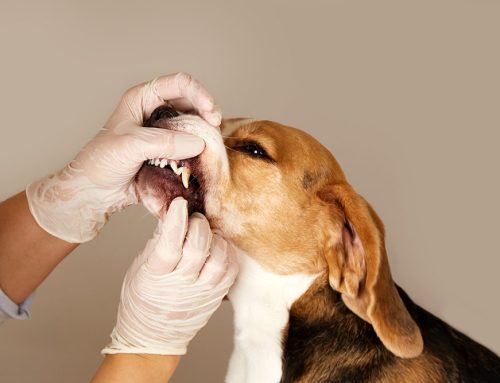When your pet requires dental work, ensuring their comfort is just as important as addressing the dental issue itself. One effective method veterinarians use to manage pain during dental procedures is the application of dental nerve blocks. This technique numbs specific areas of the mouth, reducing discomfort during and after the procedure, and facilitating a smoother recovery for your pet.
Understanding Dental Nerve Blocks
A dental nerve block involves injecting a local anesthetic near specific nerves in your pet’s mouth. This numbs targeted areas, allowing dental procedures to be performed with minimal discomfort- just like the numbing shots humans receive at the dentist to prevent pain during tooth treatments.
Common Types of Dental Nerve Blocks
Veterinarians select the type of nerve block based on the area of the mouth requiring treatment:
- Infraorbital (Rostral Maxillary) Block: Numbs the front part of the upper jaw, including the upper incisors and canines.
- Maxillary (Caudal Maxillary) Block: Affects the entire upper jaw, including molars and the palate.
- Mental (Rostral Mandibular) Block: Targets the front part of the lower jaw, numbing the lower incisors and canines.
- Inferior Alveolar (Caudal Mandibular) Block: Numbs the entire lower jaw on one side, including all lower teeth and the chin area.
The choice of block ensures that only the necessary area is numbed, minimizing the amount of anesthetic used and focusing pain relief where it’s needed most.
Medications Used and Duration of Effect
Two commonly used local anesthetics in veterinary dentistry are:
- Lidocaine (2%): Acts quickly, numbing the area within 2–5 minutes, and lasts for about 1–2 hours.
- Bupivacaine (0.5%): Takes a bit longer to take effect (5–10 minutes) but provides longer-lasting numbness, up to 6–10 hours.
Often, these are combined to provide both immediate and extended pain relief, ensuring your pet remains comfortable during and after the procedure.
How Nerve Blocks Support Complex Dental Procedures
At a specialty clinic like North Bay Veterinary Dentistry, many of the procedures we perform involve intricate surgical techniques and highly sensitive areas of the mouth and jaw. These aren’t routine cleanings—they’re medically significant interventions that require exceptional precision, control, and pain management.
Some of the advanced procedures we regularly perform include:
- Root canal therapy, used to preserve teeth that are otherwise structurally sound but have damaged or infected pulp
- Surgical excision of oral tumors, which may involve removing growths embedded in the jawbone or surrounding soft tissues
- Jaw fracture stabilization, requiring internal fixation and alignment of fragile or displaced bone segments
- Crown restoration and endodontics, especially in working dogs or pets with strategically important teeth
- Deep periodontal therapy, targeting advanced disease affecting the bone and soft tissue around the tooth root
- Corrective surgeries for congenital abnormalities, including cleft palate repairs or procedures to address misaligned bites (malocclusions)
Each of these procedures involves not only a high degree of technical skill, but also thoughtful, localized pain management. That’s where dental nerve blocks become invaluable.
Unlike general anesthesia, which affects the whole body, nerve blocks are highly targeted. They allow us to numb specific sections of the mouth—such as one quadrant of the jaw or a group of teeth—by temporarily “turning off” the nerve signals that carry pain from that region. This makes it possible to perform delicate, often prolonged procedures with less need for deep inhalant anesthesia, which reduces cardiovascular stress and improves intraoperative stability.
For us, nerve blocks aren’t just a technique—they’re a standard of care. They help us do our most complex work with greater precision and compassion, keeping your pet safe and comfortable every step of the way.
Benefits of Dental Nerve Blocks
Implementing dental nerve blocks offers several advantages:
- Effective Pain Control: In cases involving multiple extractions, tumor removal, or jaw stabilization, this extended pain control makes a meaningful difference in both short-term comfort and long-term healing.
- Enhanced Safety: Provides targeted pain relief, reducing the need for general anesthesia. Lower doses of general anesthetics mean fewer potential side effects and risks.
- Faster Recovery: Pets wake up calmer, more comfortable, and less disoriented, without the immediate spike in post-op pain that can occur once general anesthesia wears off.
- Reduced Stress: Because nerve blocks continue working for several hours after the procedure ends, they help smooth out the recovery process.
Safety and Considerations
Dental nerve blocks are considered safe when administered by trained professionals. Key safety measures include:
- Precise Administration: Knowledge of your pet’s anatomy ensures accurate placement of the anesthetic.
- Proper Dosage: Doses are calculated based on your pet’s weight and health status.
- Monitoring: Your pet is closely observed during and after the procedure for any adverse reactions.
While complications are rare, they can include minor swelling or temporary numbness beyond the targeted area.

FAQs About Dental Nerve Blocks
Are nerve blocks safe for my pet?
Yes, when administered by trained professionals, they are safe and effective.
Will my pet be fully awake during the procedure?
Dental nerve blocks are typically used in conjunction with sedation or general anesthesia to ensure your pet remains still and comfortable.
How long will the numbness last?
Depending on the anesthetic used, numbness can last from 1 to 10 hours.
Are there any side effects?
Side effects are rare but may include temporary swelling or numbness beyond the targeted area.
Is additional pain medication needed after the procedure?
Your veterinarian will assess your pet’s needs and may prescribe additional pain relief if necessary.
Your Partner in Pet Dental Health
At North Bay Veterinary Dentistry, we prioritize your pet’s comfort and well-being. Our use of dental nerve blocks is part of our commitment to providing compassionate and effective dental care. If you have concerns about your pet’s dental health or upcoming procedures, please contact us. Together, we can ensure your pet maintains a healthy and pain-free smile.






Leave A Comment